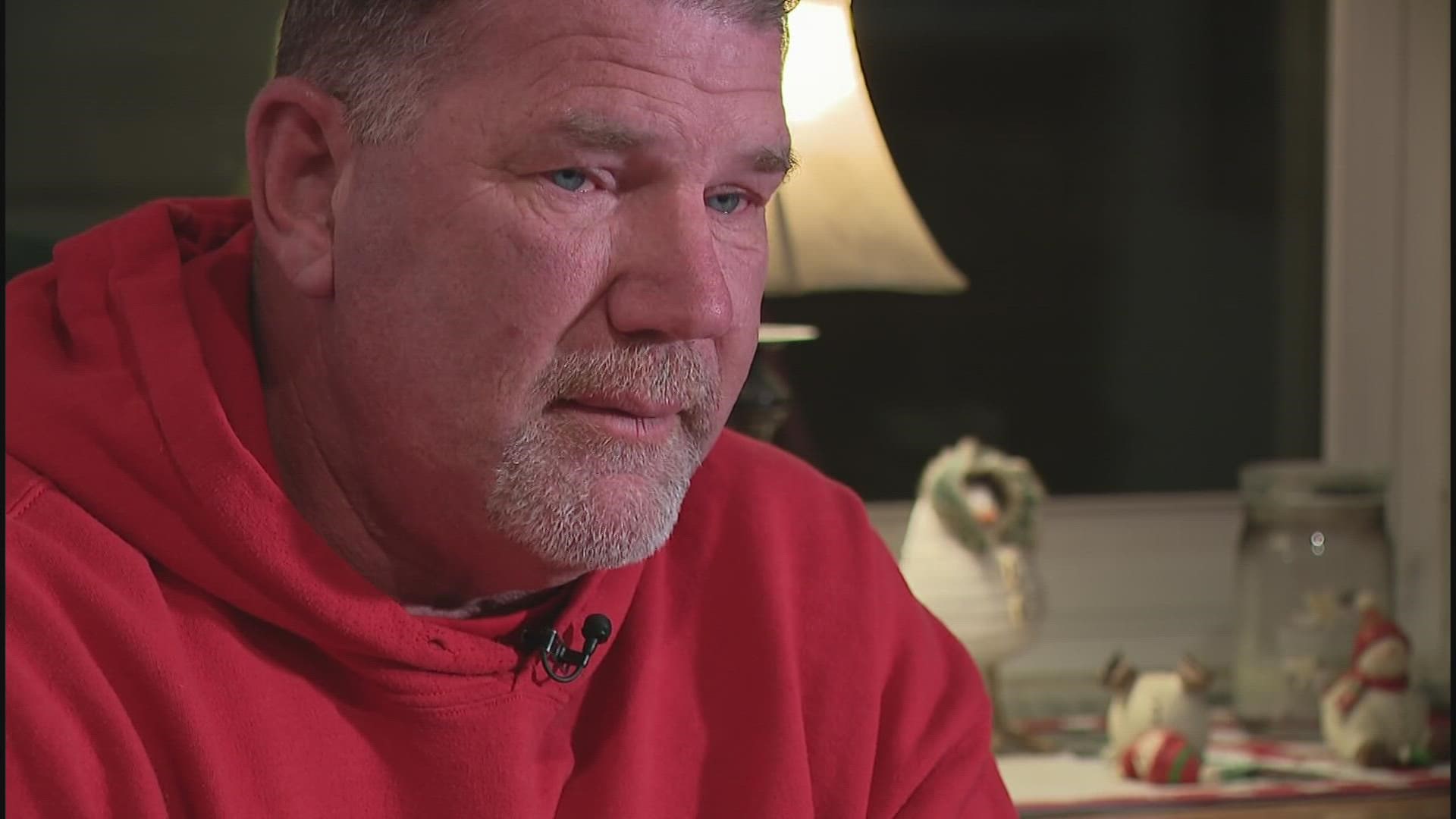COLUMBUS, Ohio — “I wake up every single morning and the first thought in my head is, is today the day?” says Marine veteran Jimmy Craig. “It’s a challenge, you’ve got to figure out a way to not shoot yourself.”
Every veteran is different. Every story is different. But for many of the men and women who have served in the armed forces, access to mental health services can often be the difference between life and death.
Craig knows that unfortunate truth all too well. One of his battle buddies reached out to him during a crisis. It’s a phone call Craig will never forget.
“He was about 71 days out for an appointment,” Craig says of his friend. “I answered the phone and said what’s up man? It was silence. He didn’t say a word. I said, take as long as you need to man, I’m right here. I could hear him, you know, he was struggling.”
The friend said he would call again the next day.
“Right before the phone went dead, I heard it,” says Craig.
He would never get that call. The sound he heard was a gunshot.
“Anybody whose been in combat that’s been wounded in combat, blown up, shot, whatever, has the physical issues. Those get dealt with just like anybody else going to the doctor. But the mental health part of it needs to be a focus,” Craig said.
The Chalmers P. Wylie Veterans Outpatient facility in Columbus has a behavioral health team of doctors providing services from mental health rehabilitation to crisis intervention and suicide prevention.
“I think, for a lot of veterans, it’s still difficult to walk in and say I need help for mental health issues,” says VA Trauma and Recovery Director Dr. Heather Robinson.
Robinson is also a veteran.
“I would say veterans who have served during wartime, they saw things we typically are not built to see, and they have to live with that the rest of their life,” says Dr. Robinson.
Dr. Robinson says there is a critical need for mental healthcare and for doctors with military experience to work with these veterans because having that in common can help build trust between doctor and patient. She says help is available but often the biggest hurdle is getting that veteran to seek it out.
“It’s not a weakness,” Dr. Robinson explains. “It takes a lot of strength to walk into this facility or into my office and say, I need help.”
The VA does have a walk-in clinic where veterans in crisis can seek immediate help. But the doctor admits that it can take up to two weeks or more to get an appointment with one of their psychologists for continued treatment.
“It’s a huge, complicated system and it’s a huge, complicated problem,” says marine veteran Cole Lyle.
Lyle is the executive director of “Mission Roll Call,” a movement giving veterans a voice on issues important to them like healthcare and benefits. But their number one priority is suicide prevention.
“It’s a complicated problem because there’s no one thing we can point to and say that’s why veterans are taking their lives. It could it service-connected, it could be from acute stress from financial issues, relationship issues, or a conglomeration of all those things,” Lyle said.
Lyle believes veteran suicide is more of an outreach and education problem than anything else. Of the 18 million veterans in this country, he says only nine million of them engage with the VA.
“We know that veterans who are engaged with the VA or community resources are less likely to take their own lives so getting that information and getting those resources out there to veterans is a big deal and to be honest, not every VA does a great job of outreach,” said Lyle.
Having suicidal thoughts is something Jimmy Craig can relate to. “It’s the first thing I think of in the morning. Is today the day I make everything stop?” says Craig.
Living can be much harder for combat veterans like Craig. He suffers from Post Traumatic Stress Disorder or PTSD. He has night terrors, and experiences the same bad dream over and over, night after night. He also deals with the loss of friends and survivor issues.
Living with a veteran can also be difficult for their spouse. Libby Craig watches her husband, Jimmy, suffer in silence not really knowing how to help him.
“It’s hard, but I have to be that sounding board,” Libby says. “I have to listen, I have to help, I have to be patient. It’s hard, but we’re a team.”
She says they have good days, bad days, and worse days. Although her husband’s suicidal thoughts are concerning, Libby believes Jimmy is strong. He’s still here and he’s still working with other veterans in crisis.
“They have to find each other,” Libby says. “The combat guys have been through it. It doesn’t have to be the same fight, but combat is combat.”
If you are a veteran in need of mental health services, below is a list of resources.
- National Suicide Prevention Lifeline: 1-800-273-8255
- Veteran Crisis Line: 1-800-273-8255, Press 1
- Make the Connection
- VA Whole Health Program
- VA Mental Health Services
- Free Resources for Veterans with PTSD
- Wounded Warrior Project - mental wellness help
- Columbus Springs

